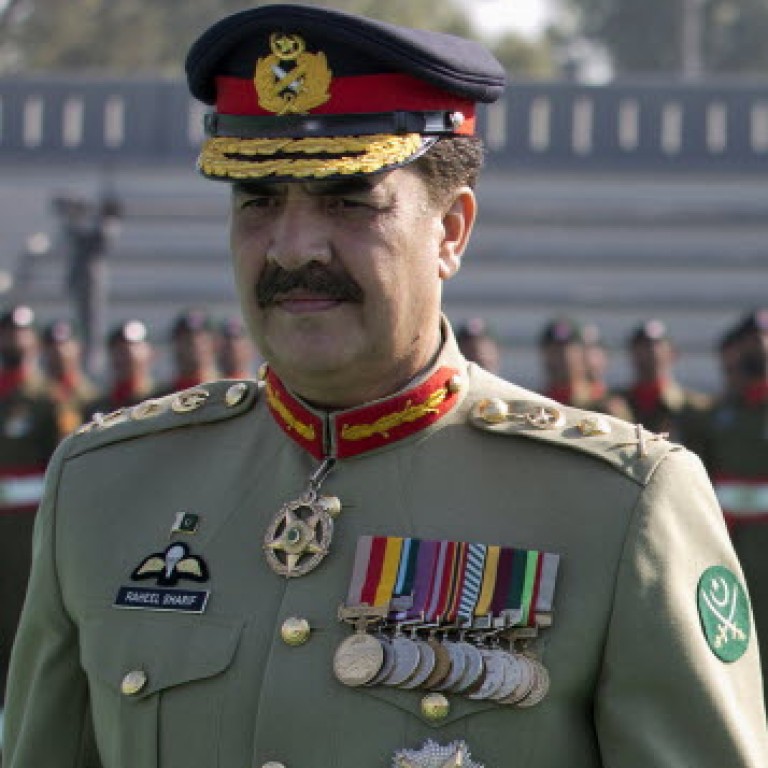
Pakistan’s army publicly shames two retired generals for misusing funds in bid to clean up corruption
Pakistan’s army has taken the almost unheard of step of publicly shaming two retired generals for misusing funds, in a move many army-watchers applauded as a significant attempt by the country’s top general to clean up corruption in the all-powerful institution.
The two officers were punished for making disastrous investments totalling £25m through the National Logistics Cell (NLC), an army-run transport company which is part of a vast military commercial empire including property developments, cement plants and manufacturing interests.
In a statement late on Wednesday night the army said the former director general of the NLC, a retired major general called Khalid Zahir Akhter, had been dismissed from service and stripped of his rank, medals and pension.
Meanwhile, Muhammad Afzal Muzaffar, a retired lieutenant general, was given a lighter disciplinary measure of “severe displeasure”.
Both had been recalled back into service so they could be tried under military law.
“It is a major development because the military is perceived a sacred cow not subject to any accountability,” said Talat Masood, a retired lieutenant general. “It shows the changes that are taking place under General Sharif.”
Raheel Sharif was appointed as chief of army staff in 2013, a role considered to be at the tip of power in a country where the military controls a swath of the economy and calls the shots on many areas of policy nominally managed by civilian politicians.
Under Sharif’s predecessor, Ashfaq Kayani, an army investigation into the NLC case had been allowed to gather dust years after it was first exposed in 2009 by a parliamentary accounts committee.
A former official at the National Accountability Bureau, an anti-corruption watchdog, said Kayani had “intervened on several occasions”in the case.
By contrast Sharif had “instructed to dispose of the case on fast track for want of justice and transparency”, according to an army statement.
The reinvestigation ordered by Sharif found the two officers and one civilian “were indeed responsible for making incorrect decisions of investments in violation of NLC rules and regulations thereby causing losses to the organisation”.
According to an earlier inquiry the NLC piled up huge loses after using money borrowed from banks to invest in risky stocks between 2004-8.
Syed Adil Gilani, head of Transparency International Pakistan, an anti-corruption group, said the army normally keeps internal probes into senior officers secret to preserve morale at a time troops are engaged in bloody counterinsurgency operations against militant groups.
He said the army believes terrorism cannot be thwarted without steps being taken against the country’s vast criminal economy, which includes rampant “land grabbing”by property speculators.
“This is a signal to the civilians that they also need to tackle corruption or otherwise terrorism cannot be eliminated,” he said.
Sharif has also been credited with allowing investigations to proceed against an alleged £3m fraud committed by Elysium Holdings, a company owned by one of General Kayani’s brothers, which is accused of illegally selling certificates for allotments to build houses on land near Islamabad that it did not in fact own.
“No one would touch Kayani’s brothers unless the army chief OKs it,” said Hasan Askari Rizvi, a Lahore based political analyst. “[Sharif] wants to deal with issues that have become so public that they are damaging the image of the army."
In line with many other analysts, Rizvi credits Shaif with making significant changes during his tenure, particularly his decision in June 2014 to finally send troops into the Taliban sanctuary of North Waziristan, despite opposition from civilian politicians.

